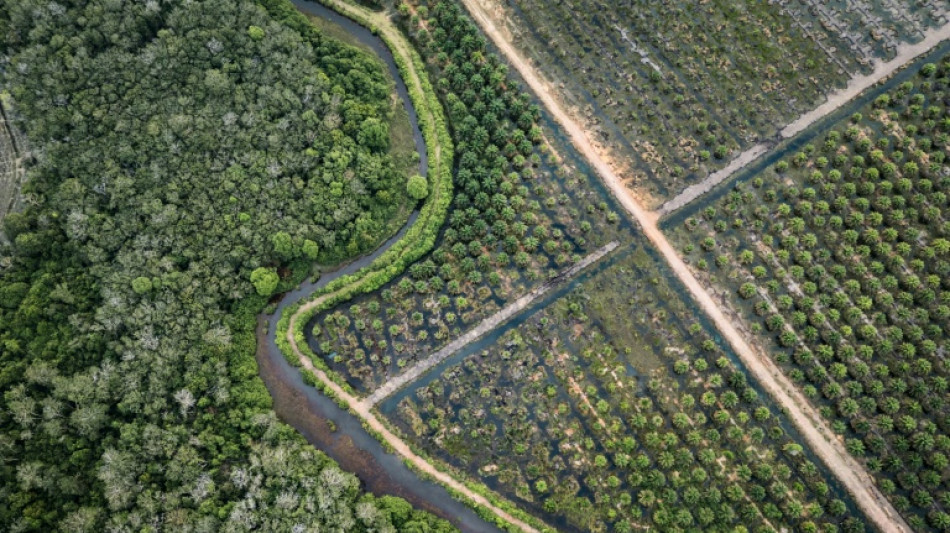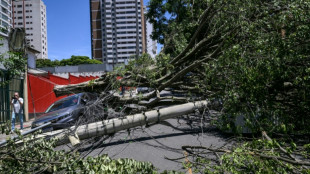

EU proposes new delay to anti-deforestation rules
The EU said Tuesday it will seek a new one-year delay to sweeping anti-deforestation rules cheered by green groups but assailed by key trading partners from the United States to Indonesia.
The bill, which bans imports of products driving deforestation, is currently set to take effect at the end this year, but the European Commission said the supporting system was not ready.
It would be the second postponement on implementing the law, which was passed in 2023 and was originally due to take effect in late 2024, before being delayed to late 2025.
"We have concluded that we cannot meet the original deadline without causing disruptions to our businesses and supply chains," commission spokesman Olof Gill told a press conference in Brussels.
The European Union executive will as a result push to delay the law's entry into force by one more year, to late 2026, he added. The postponement has to be approved by member states and the European Parliament.
The move is set to bring renewed scrutiny to the EU's commitment to a greener future, which has come under increased pressure from governments and industry over the past year.
It came hours after the commission struck a free-trade deal with Indonesia, a prominent critic of the law -- although environment commissioner Jessika Roswall said the two developments were "not linked at all".
The deforestation law was hailed by environmental groups when it was adopted as a major breakthrough in the fight to protect nature and combat climate change.
It prohibits a vast range of goods -- from coffee to cocoa, soy, timber, palm oil, cattle, printing paper and rubber -- if produced using land that was deforested after December 2020.
Firms importing the merchandise in question to the 27-nation EU will be responsible for tracking their supply chains to prove goods did not originate from deforested zones, relying on geolocation and satellite data.
But the ban has faced opposition from trading partners, including Brazil and the United States, and some EU capitals, amid concerns over red tape, costs and lack of clarity over some aspects of the law.
Partially because of this, its entry into force was pushed back by 12 months a first time in 2024.
- 'Wider battle' -
The commission said the new delay had to do with "serious capacity concerns regarding the IT system" designed to support implementation of the rules, saying more time was needed to get it running smoothly.
"Given the projected load, the Commission will therefore seek a postponement... in order to avoid uncertainty for authorities and to avoid operational difficulties for companies," Gill said.
The push comes as climate has increasingly taken a back seat in Brussels, with global trade tensions and the war in Ukraine shifting the focus to industry and defence -- something that was not lost on green groups.
"This is part of a wider battle: between those who want to protect the natural world and the life systems which depend on it, and those intent on destroying it, often driven by narrow self-interest," said Nicole Polsterer, of environmental group Fern.
"Every day this law is delayed equates to more forests razed, more wildfires and more extreme weather."
Critics of the law say it imposes an excessively heavy administrative burden on farmers and companies.
But WWF, another environmental group, said a new delay would lead to "massive stranded costs" for all firms that had already invested in complying with the new rules.
"If this technical issue is real, this shows not only incompetence, but also a clear lack of political will to invest sufficiently in a timely implementation," said Anke Schulmeister-Oldenhove, WWF's forest policy manager.
F.Lono--HStB






